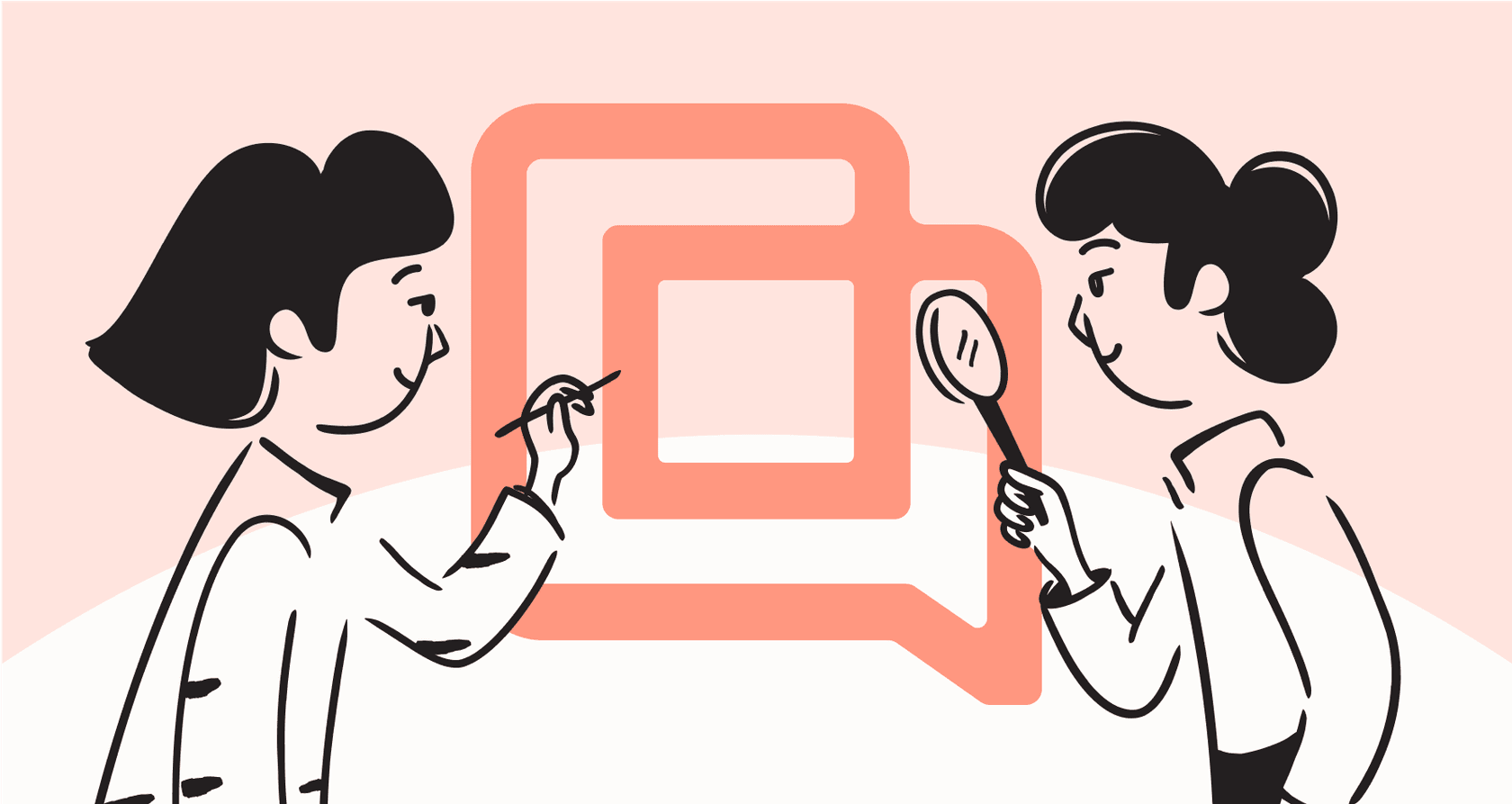A complete overview of Gorgias AI: Features, pricing, and limitations in 2026

Stevia Putri

Stanley Nicholas
Last edited January 16, 2026
Expert Verified

If you run an ecommerce store, you know the feeling. The support inbox is constantly overflowing, and it seems like half the questions are just people asking, "Where's my order?" It’s no wonder so many brands are turning to AI to keep their heads above water. And if you're in the ecommerce space, you’ve definitely heard of Gorgias, the industry leader in the helpdesk world, especially for Shopify stores.
This post is a helpful look at Gorgias AI, the native artificial intelligence features baked into the platform. We're going to dig into what it can do, how the pricing works, and some of the key considerations to keep in mind. My goal is to give you the context you need so you can decide how to best leverage it for your business.
What is Gorgias AI?
First off, let's quickly cover the basics. Gorgias is a powerful customer experience platform built specifically for ecommerce. It pulls all your customer conversations from email, chat, social media, and everywhere else into one unified feed so you're not juggling a dozen tabs.

Gorgias AI is the impressive layer of automation built on top of that, primarily found in their "AI Agent" or "Gorgias Automate" add-on. Its main job is to automatically answer repetitive questions, identify customer needs, and help your human agents manage their workload more effectively. It acts as a helpful assistant for your support queue, handling routine queries so your team can focus on more personalized customer interactions. For more on Gorgias capabilities, see our Gorgias support guide.
Key features and capabilities of Gorgias AI
Gorgias AI is designed for the fast-paced world of online retail. It focuses on a few key areas that can really benefit a busy support team.
Efficiently managing common inquiries
The AI is trained to tackle high-volume questions that often fill up an inbox. This is especially true for the frequent "Where is my order?" (WISMO) tickets. Gorgias reports that its AI can successfully handle up to 60% of all support chats on its own, including processing returns and refunds. This capability allows your team to dedicate more time to complex inquiries that require a human touch.
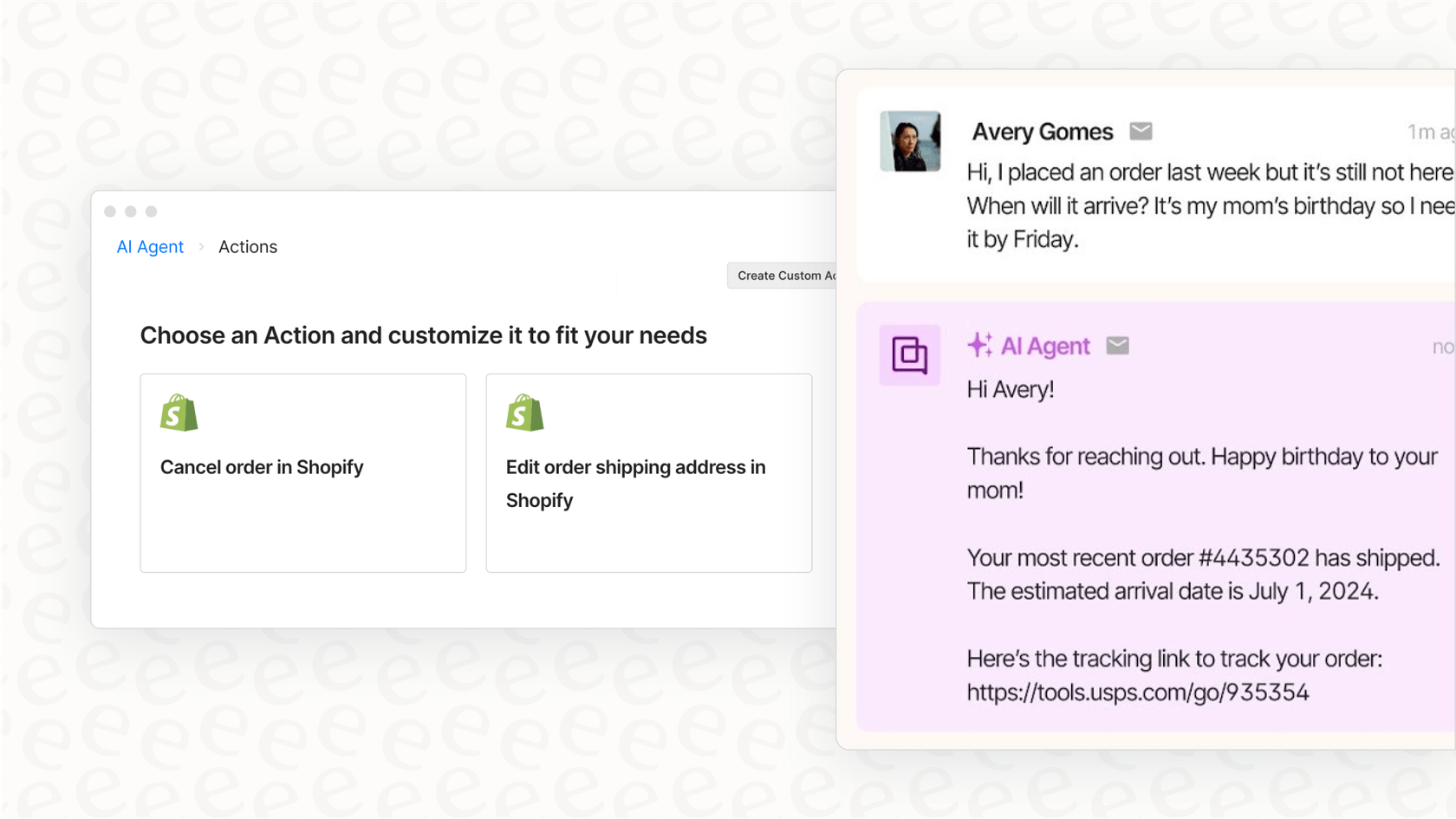
Deep Shopify integration
One of the standout features of Gorgias is its deep connection to your Shopify store's data in real-time. Instead of just providing general information, the AI can access a customer's order history, update shipping details, apply discount codes, or issue refunds directly within the helpdesk. This seamless integration ensures that your agents and the AI have the most accurate information at their fingertips without switching systems.

Intent and sentiment detection
Gorgias AI also analyzes incoming messages to understand a customer's intent and sentiment. It can distinguish between a sales inquiry, a technical issue, or a time-sensitive concern. This allows the system to automatically tag and route tickets to the most appropriate agent or department. This ensures that every customer receives the right level of attention based on their specific needs.
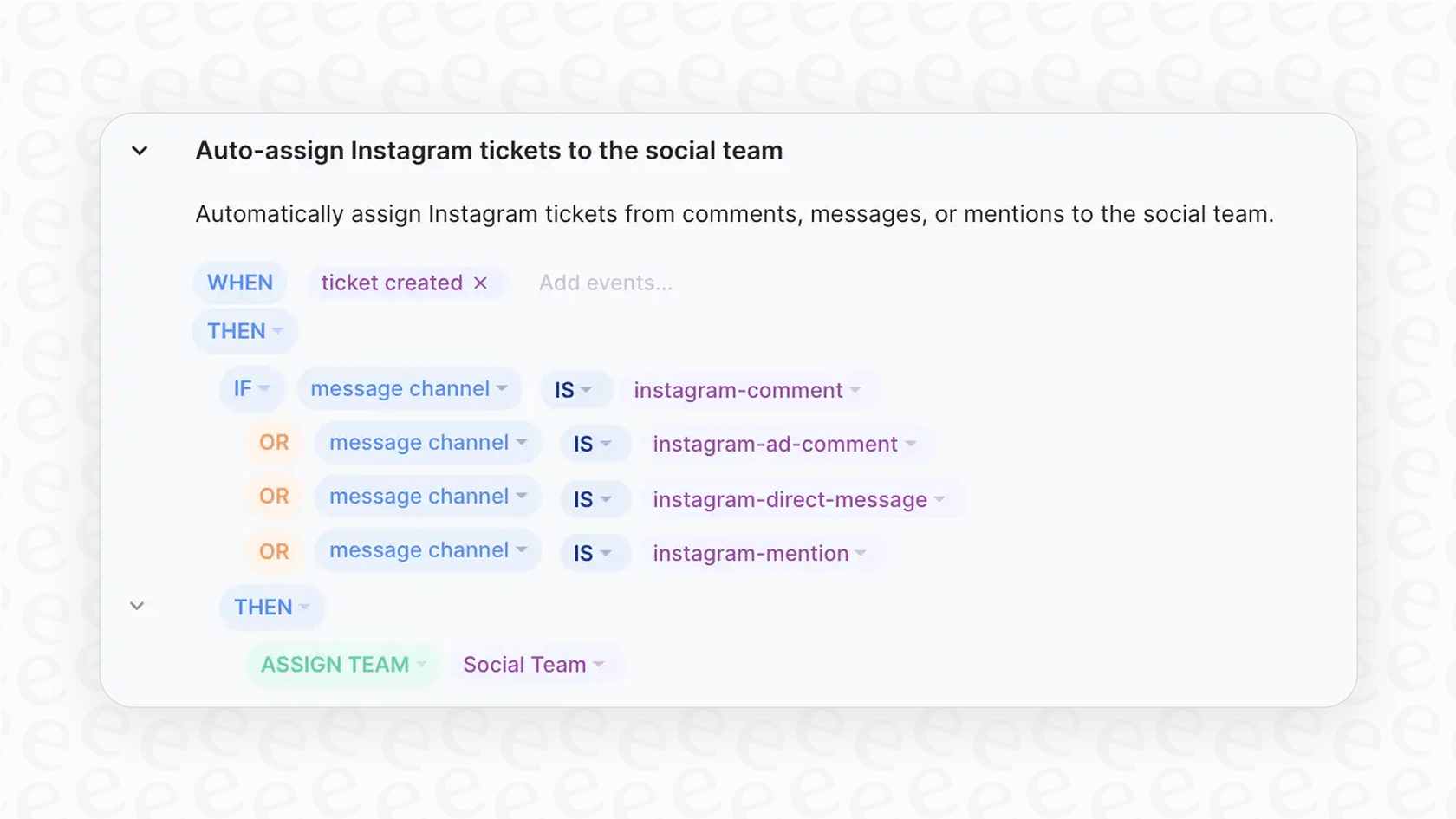
Proactive chat campaigns
Gorgias can also be a valuable tool for driving growth. You can set up proactive chat pop-ups on your website based on shopper behavior, such as when a customer spends time on a specific product page. These helpful nudges can answer last-minute questions and support the customer's journey, making it an excellent way to turn a support tool into a helpful sales assistant.
Understanding the Gorgias AI pricing model
When considering any professional tool, it's important to understand the investment involved. Gorgias offers a tiered structure designed to match different business sizes. Let's look at how Gorgias's structured pricing options work.
The ticket-based pricing model
Gorgias plans are based on a monthly number of "billable tickets." A ticket is counted when it receives a reply, whether from a human agent, an automated rule, or the AI. Each plan comes with a set number of tickets, and tiered pricing allows you to scale your plan as your business grows.
The structure of automation pricing
The advanced AI features are available through the "Gorgias Automate" add-on. This part of the platform focuses on successful resolutions, with a fee typically ranging between $0.90 and $1.00 per resolution.
It's helpful to note that when the AI resolves a ticket, it counts toward your base plan's monthly ticket limit alongside the per-resolution fee. This integrated approach ensures that all support activities are consistently tracked within your chosen plan.

A full pricing breakdown
Here is a summary of the plan options available with annual billing in 2026.
| Plan | Monthly Price (Annual Billing) | Included Helpdesk Tickets | Overage Cost | AI Resolution Cost |
|---|---|---|---|---|
| Starter | N/A (Monthly only at $10) | 50 | +$0.40 / ticket | N/A |
| Basic | $50 | 300 | +$40 / 100 tickets | ~$1.00 / resolution (add-on) |
| Pro | $300 | 2,000 | +$36 / 100 tickets | ~$0.90 / resolution (add-on) |
| Advanced | $750 | 5,000 | +$36 / 100 tickets | ~$0.90 / resolution (add-on) |
Key considerations and best practices for Gorgias AI
While Gorgias AI is a robust platform, there are a few areas where teams often focus their attention to get the most out of the tool.
Aligning the AI with your brand voice
One consideration for any AI is ensuring it matches your unique brand personality. Gorgias AI provides a professional and clear communication style, which is a great foundation. Some teams choose to fine-tune these responses to ensure they feel as personal as possible for their specific audience.
For teams looking for even more granular control, tools that offer deep prompt customization can be a great addition. For example, eesel AI works as a complementary option that includes a fully editable prompt editor, allowing you to dial in an exact conversational style that works alongside your Gorgias setup.
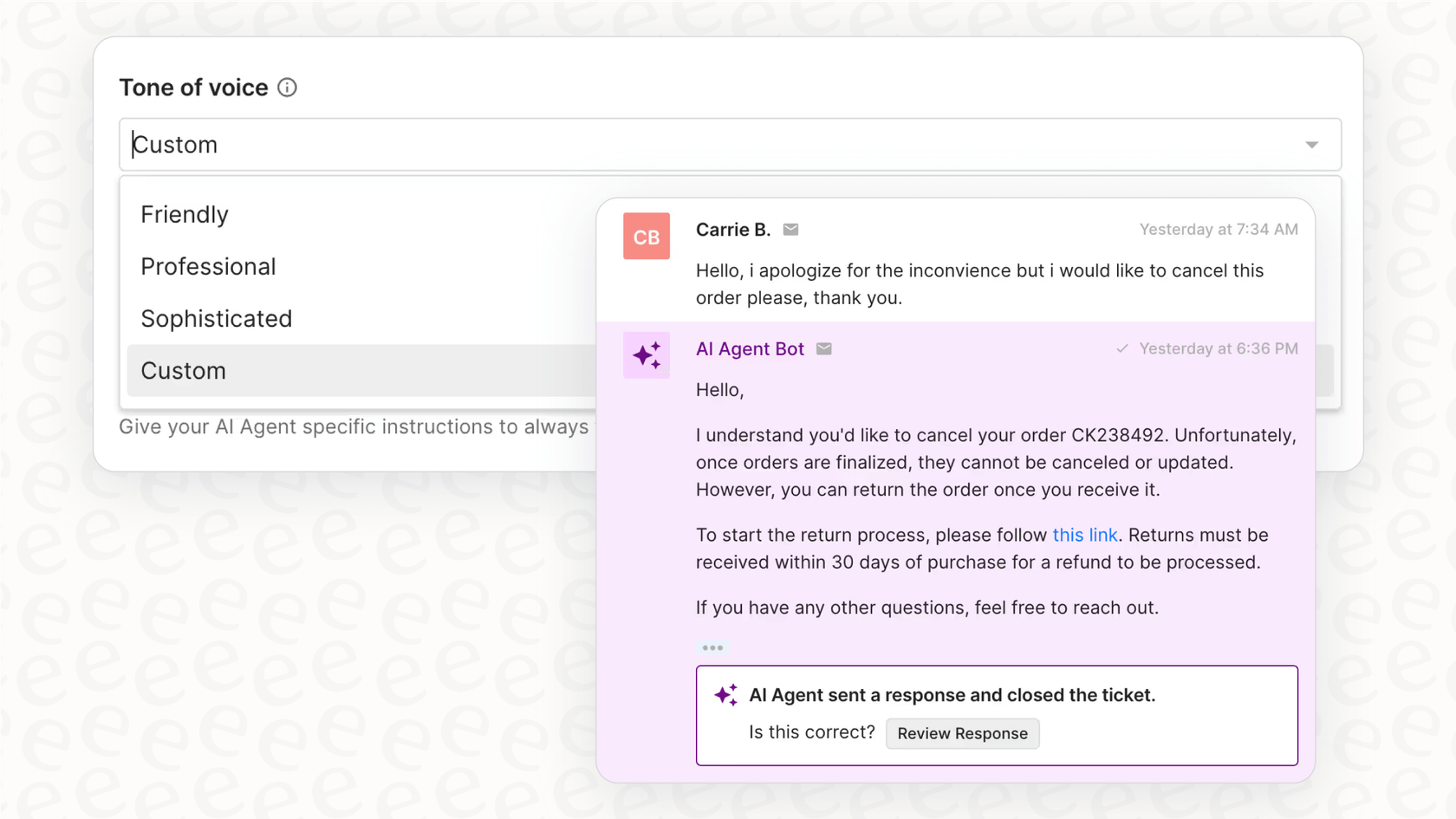
Connecting broader knowledge sources
Gorgias AI is excellent at pulling from Shopify, but some businesses have information stored in other locations, like Confluence or Google Docs. To ensure the AI has every answer it needs, you can look into ways to connect these various silos.
Many support teams enhance their ecosystem by using eesel AI as a complementary tool. It can plug into over 100 sources, working with Gorgias to build a truly comprehensive knowledge base that leaves no question unanswered.
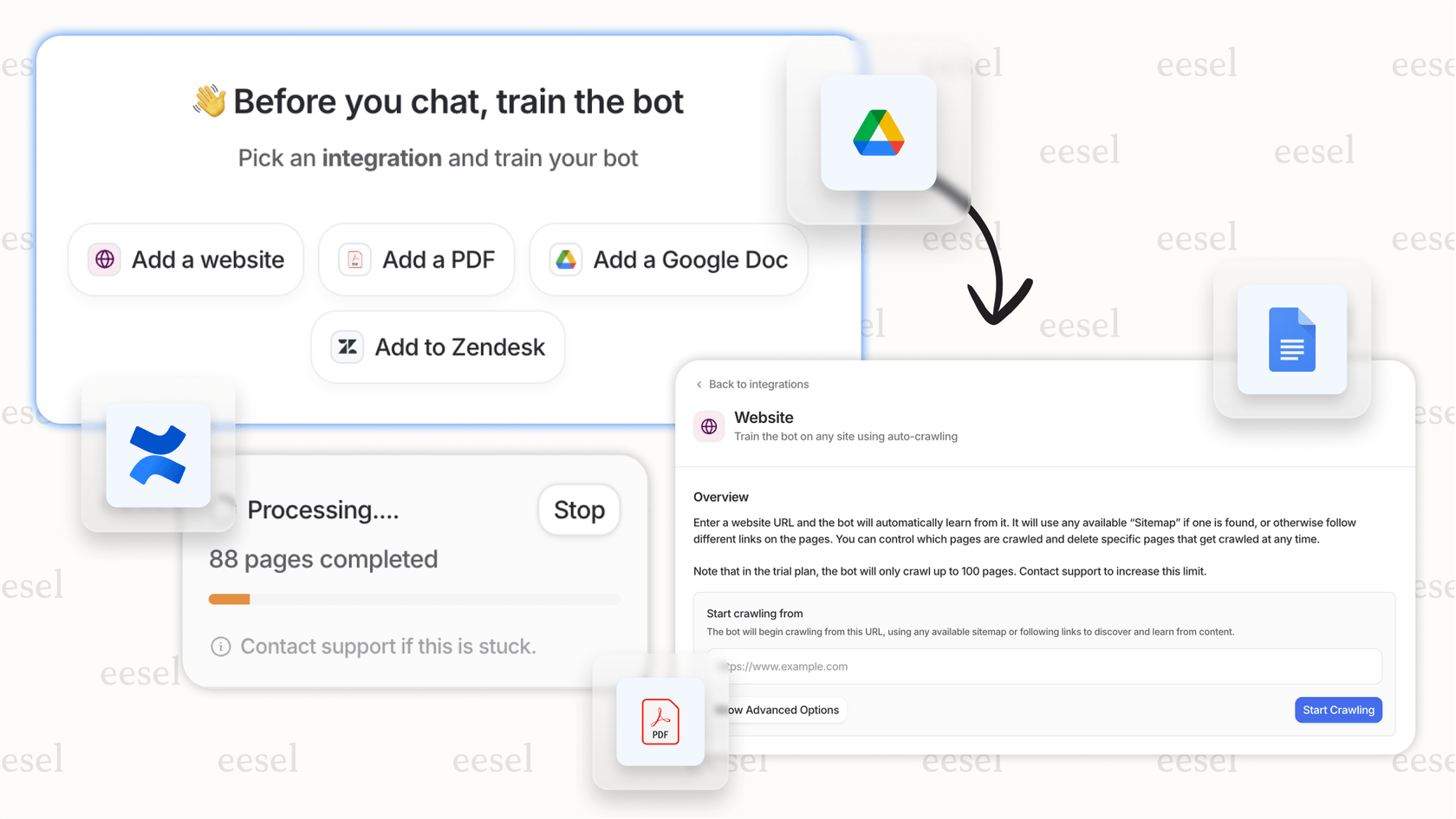
Managing the launch process
When introducing new automation, it's always a good idea to monitor performance during the initial rollout. While Gorgias AI is designed for easy activation, staying close to the initial responses helps you ensure that everything is working exactly as intended for your customers.
For those who prefer to test extensively before going live, eesel AI offers a simulation mode that can run within your environment. It can show you how the AI would have replied to past tickets, helping you predict your deflection rate and feel confident before your customers see the first response.
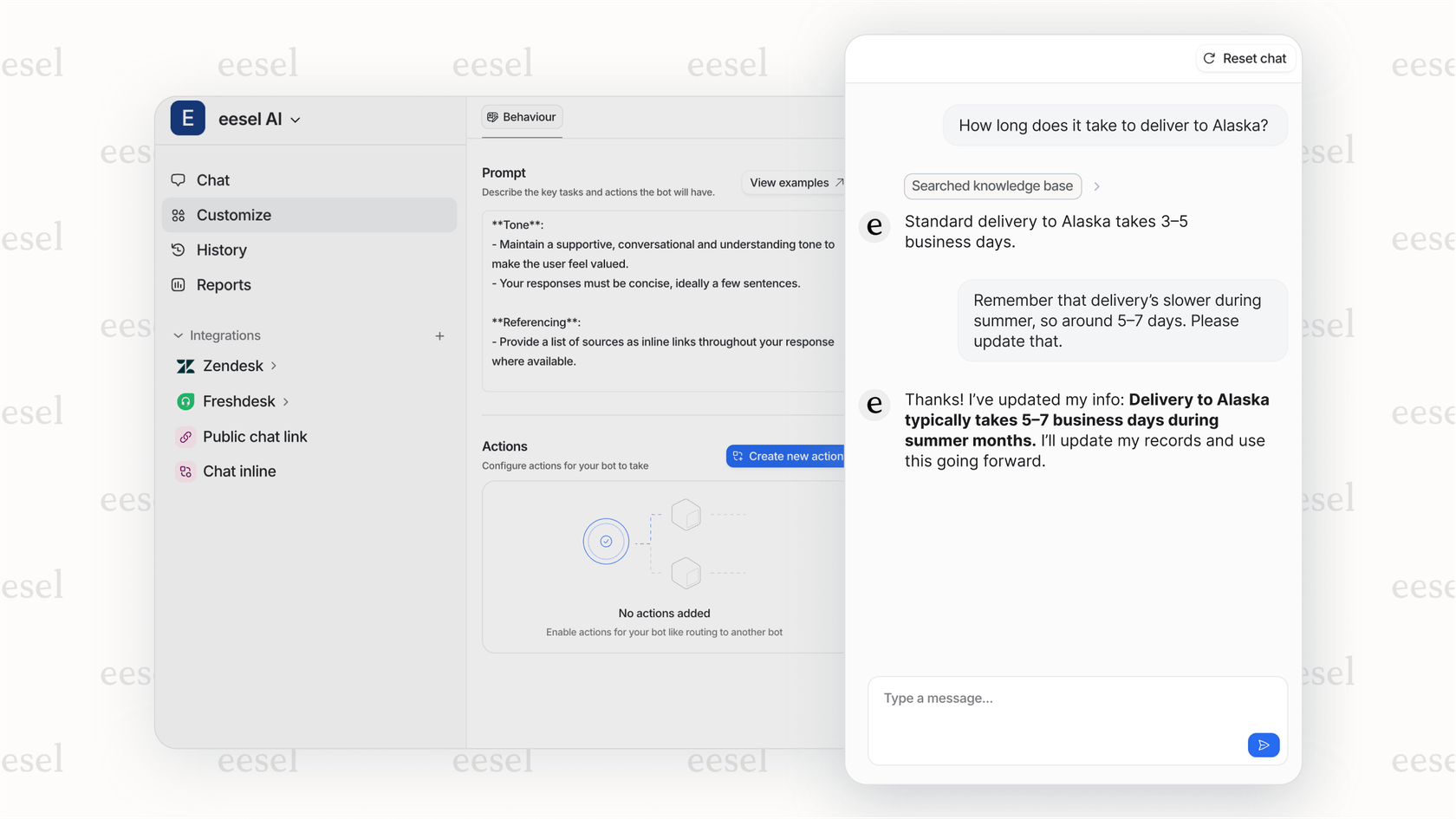
Is Gorgias AI right for your business?
Gorgias AI is a powerful and mature tool, especially for ecommerce brands that rely on Shopify. Its ability to handle orders and run proactive sales chats directly within the helpdesk makes it a top-tier choice for growing stores.
This video provides a helpful walkthrough on how to set up the AI agent in Gorgias to get started with automation.
While it's important to understand the pricing structure and how to best manage the AI's knowledge, Gorgias remains the gold standard for many ecommerce support teams. It’s a reliable platform that scales well as your business expands.
Enhance your support with AI that fits your needs
If you're looking for ways to further customize your support automation or connect additional knowledge sources, there are excellent options that work right within the Gorgias ecosystem. eesel AI integrates seamlessly with your helpdesk, including Gorgias, to give you extra flexibility.
With transparent pricing and a fully customizable persona, it’s a great way to make your Gorgias setup even stronger. You can get it up and running quickly to start seeing the benefits of a fully integrated AI strategy.
Frequently asked questions
Gorgias AI is a sophisticated automation layer built into the Gorgias customer experience platform. Its main role is to automatically answer repetitive customer questions, determine customer intent, and help human agents efficiently manage support volume, especially for growing e-commerce stores.
Gorgias AI is specifically trained to tackle high-volume, simple questions like WISMO tickets. It can handle up to 60% of support chats completely on its own, including tasks like processing returns or refunds, which helps free up human agents for more complex tasks.
Gorgias AI has deep, real-time integration with Shopify stores. This allows it to access customer order data, modify shipping details, apply discounts, or issue refunds directly within the helpdesk, streamlining operations and maintaining a smooth workflow.
Gorgias AI features are available as an add-on via "Gorgias Automate." There is a per-resolution fee (around $0.90-$1.00) for each ticket the AI successfully resolves. These resolutions are integrated into your plan's ticket ecosystem to ensure consistent tracking across your support operations.
Gorgias AI provides a professional and efficient tone out of the box. While the native customization options are designed for clarity, teams can work within the platform to match your brand's voice as closely as possible.
While Gorgias AI integrates seamlessly with Shopify, some businesses may find they have "knowledge gaps" if specific information is stored in external internal wikis or document repositories. In these cases, teams often find success by supplementing Gorgias with additional knowledge sources.
Gorgias AI is designed for ease of use and direct deployment. To ensure the best performance, businesses typically monitor the AI closely during its initial launch phase to fine-tune responses and ensure a high-quality customer experience.
Share this post

Article by
Stevia Putri
Stevia Putri is a marketing generalist at eesel AI, where she helps turn powerful AI tools into stories that resonate. She’s driven by curiosity, clarity, and the human side of technology.


